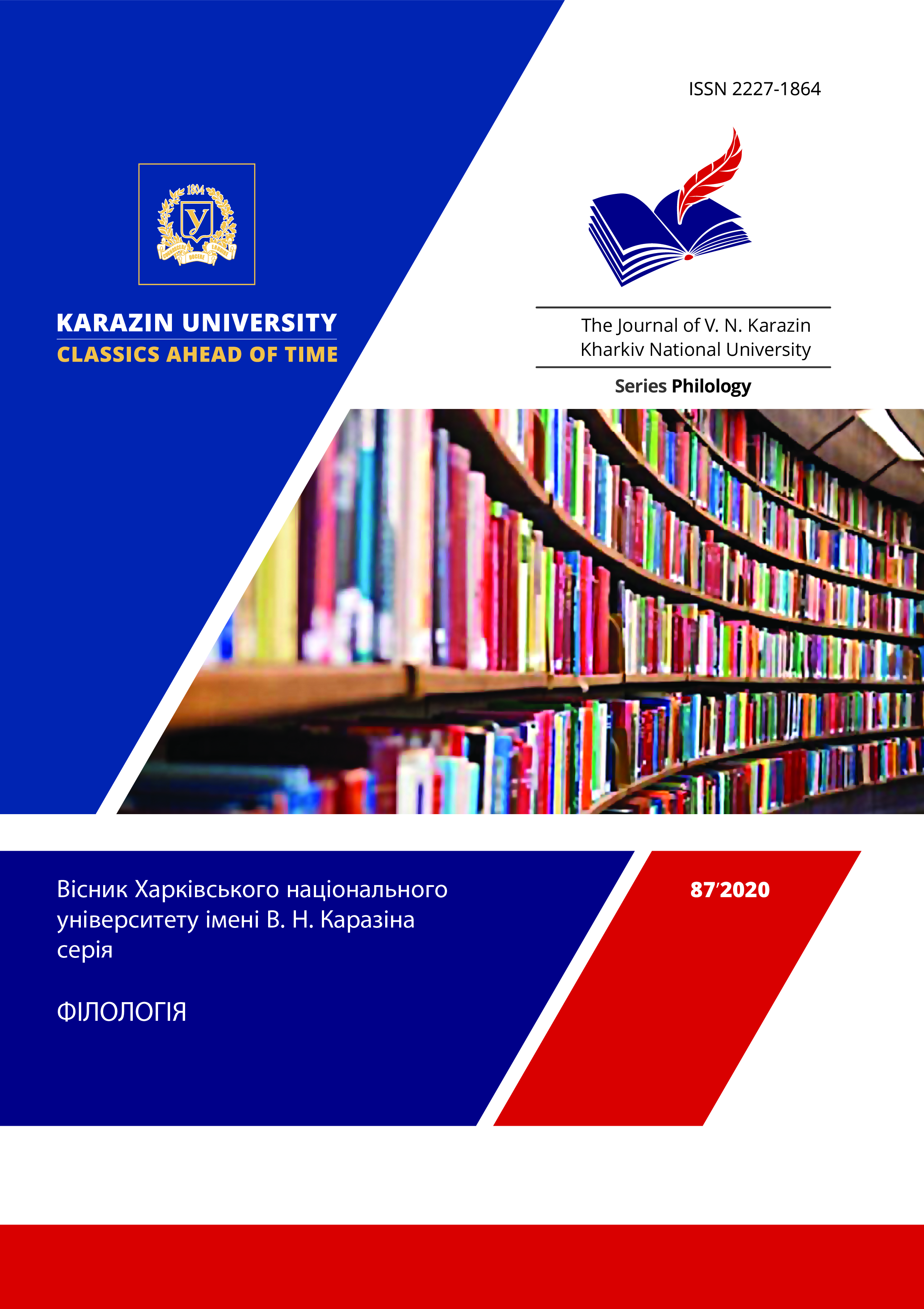Features of the formation of pysanka names in the Ukrainian linguistic tradition
Abstract
Analysis and systematization of the lexis designating the pysanka (painted Easter egg) traditions are of great importance for the normalization of Ukrainian terminology since it reflects lexical abundance of the Ukrainian language, its historical roots, place and role in the system of lingual world of the Ukrainians. Topicality of the research is stipulated by the fact that the pysanka art terminology has not been the subject matter of linguistics yet. The topic is chosen owing to the necessity of describing the lexis of the analyzed semantic group. The research objective is the determination of specific features of the origin of certain thematic words. To do that, structural-semantic and etymological analysis of the names of pysanka art products has been applied. Study of the structural and semantic area is aimed at specifying the features of the structure and notional organization of the units under analysis; etymological study of those units makes it possible to identify their relation with the corresponding deriving words and word combinations, demonstrating the nature of their origin both in speech and language. The objective meeting involves solution of the following problems: to give definition for each analyzed unit; to determine the approximate time and cause of its origin; to demonstrate its use in the certain context; and to comment on its grammatical characteristics and models of its formation. Each unit of the lexical group under consideration has been analyzed in terms of its relation to the univerbalized equivalents of word combinations, i.e. as a synthetic unit arisen as a result of univerbal transformation of a word combination into a word; it has the lexical meaning, identical to the word combinations, and a syntactic function. It has been concluded that the analyzed units belong to the univerbs or quasiuniverbs depending on the ways and chronology of their origin both in speech and language. Perspectives of further studies of the represented semantic group of words are in the analysis of their derivative potential in the Ukrainian and other Slavic languages.
Downloads
References
Diachok, N. (2019), Foundations of universalization: structural and semantic criterion. [Osnovy univerbatsii: strukturno-semanticheskiy kriteriy], Slovyansk. 346 p.
Diachok, N., Ivko, O. (2020), Materials for the dictionary of univerbs of the modern Russian language. Revised edition. [Materialy k slovaryu univerbov sovremennogo russkogo yazyka. Izdaniye dopolnennoye], Slovyansk. 492 p.
Diachok, N. (2015), Universalization in the Russian language: structural-semantic and onomasiological description. Diss. … Doctor filol. sciences. [Univerbatsiya v russkom yazyke: strukturno-semanticheskoye i onomasiologicheskoye opisaniye. Diss. … doktora filol. nauk]. Artemovsk. 522 p.
Diachok, N., Oblap, A. (2019), “The principles of compiling a dictionary of universities (based on game vocabulary)”. Problems of General and Slavonic languistics. [“Printsipy sostavleniya slovarya univerbov (na materiale igrovoy leksiki)”. Problemy zahalʹnoho ta slovyansʹkoho movoznavstva], No 3. Pp. 10–11.
Diachok, N. (2018), “Universalization as a universal lingual phenomenon”. Theoretical and applied problems of modern philology. [“Univerbatsiya kak universal'noye lingval'noye yavleniye”. Teoretychni y prykladni problemy suchasnoyi filolohiyi], Iss. 6. Slovyansk. Pp. 143–149.
Zhayvoronok, V. (2006), Signs of Ukrainian ethnoculture. Dictionary-reference. [Znaky ukrayinsʹkoyi etnokulʹtury. Slovnyk-dovidnyk] Kiev. 703 p.
Dictionary of the Ukrainian language: in 11 vols. (1970–1980), [Slovnyk ukrayinsʹkoyi movy: v 11 tt.], Kiev. Vol. 6.
Tkachenko, V. (2015), “The religious symbol of Easter – pysanka – in archival sources of the early twentieth century from Ovruch region”. Scientific notes on Ukrainian history. Collection of scientific articles. [“Relihiynyy symvol Velykodnya – pysanka – v arkhivnykh dzherelakh pochatku XX stolittya z Ovruchchyny”. Naukovi zapysky z ukrayinsʹkoyi istoriyi. Zbirnyk naukovykh statey], No 36. Pp. 47–53.
Etymological dictionary of the Ukrainian language. (2003), [Etymolohichnyy slovnyk ukrayinsʹkoyi movy], Kiev. Vol. 4. 653 p.
Fasmer, M. (1987), Etymological dictionary of the Russian language. [Etimologicheskiy slovar' russkogo yazyka], Moskva. Vol. 3. 832 p.




